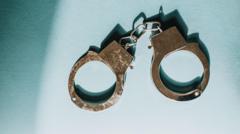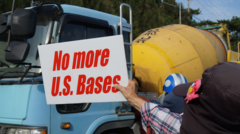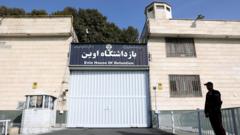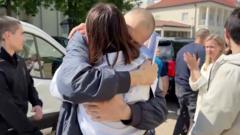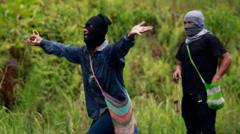Controversy erupted at Kenya's national high-school drama competition when police used tear gas to break up a crowd eager to see the performance of "Echoes of War." The play reflects the disillusionment of Kenyan youth with their leaders amid recent tax protests and features scenes of conflict between youth and police. Initially disqualified, a High Court ruling later allowed it to participate, but tensions escalated on Thursday when audiences gathered to support the arrested scriptwriter, Cleophas Malala. The police had blocked him from final rehearsals, leading to a dramatic boycott by students from Butere Girls School. Malala was eventually released, calling the students' actions heroic, while officials raised concerns about political interference in education. International rights groups criticized the police's actions, and calls for free expression and serious dialogues around political involvement in educational events grew louder.
Kenya's School Drama Competition Marred by Police Action and Controversy
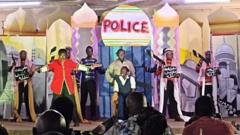
Kenya's School Drama Competition Marred by Police Action and Controversy
Tear gas was deployed by police to disperse crowds at a high school drama competition in Kenya, following tensions over a politically charged play.
Kenya's national high-school drama competition faced upheaval as police deployed tear gas to disperse a crowd trying to witness the controversial play, "Echoes of War." The drama reflects the frustrations of the youth with their leaders and criticizes government policies, having gotten a second chance to compete in light of a High Court ruling. Tensions peaked when students protested against the arrest of the play's scriptwriter, Cleophas Malala, leading to their boycott of the performance. Malala has since been released, receiving praise for the students' brave stand against police actions. Critics, including rights organizations and political figures, are urging a reevaluation of the relationship between politics and education in Kenya.






